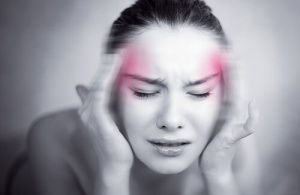How Does Stress Affect Women?


Written and verified by psychologist Valeria Sabater
Stress is frequently talked about in very generic terms throughout media and in specialized magazines, but very rarely do they take into consideration the differences in women, and how this dimension can affect their personal reality.
Women have a different physiology than men, whereby the weight of their hormones makes stress affect them differently.
When we add to all that the fact that their responsibilities stretch from the workplace to the family (caring for children and even elderly family members), their reality becomes imbued with other factors that cause obviously stressful situations.
Also read:
Their bodies become affected by certain changes that are different to those that men experience. It is with this knowledge that we want to address this reality in order to provide you with a few guidelines that you may find helpful.

How woman deal with the way that stress and hard situations affect them
- Workplace pressure along with family obligations
- Menopause
- Tending to sick family members
- Marriage problems, separations, divorce
Studies show that women, on average, are more sensitive to stress than men. However, thanks to their estrogen levels, they handle it better and are hardier.
Professor Karl Pribram from the University of Chicago, argues that women also address stress in a much more logical and verbal way than men. These strategies undoubtedly make them more capable in this dimension.
The way stress can affect the health of women
- Headaches, especially just before her menstruation, with severe migraines
- Esophageal spasms (stomach aches and even difficulty swallowing)
- Acid reflux
- Hair loss
- Nausea
- Aches and pains in the chest, back and neck
- Frequent urge to urinate
- Chronic fatigue
- Lack of sexual drive
- Changes in menstruation (primarily delayed onset and even menstrual disappearance, which is commonly known as amennorrhoea)
- Anxiety attacks
- Insomnia
- Immune system disturbances: we are more prone to suffering from diseases like osteoporosis, inflammatory arthritis, type 2 diabetes, etc.
- Constipation or diarrhea
- Skin problems: the skin is very sensitive to situations of anxiety or stress, making inflammatory reactions like eczema, blotchiness, dark circles under the eyes and loss of brilliance a common issue. All of this is due to the fact that the epidermis cells react immediately to stress hormones, causing vasoconstrictions, the appearance of more hair, increased sweating and a general tired look.
You may want to read:
What is Eczema? Learn about its Causes, Symptoms, Diagnosis and Treatment
When the stressful situation becomes very intense and persistent, we could become affected by much more complex realities that can cause the following illnesses:
- Anorexia or bulimia
- Depression
- Anxiety disorders
How to face stress
If there is one thing negative about stress, it’s that it steals years from our lives. It causes us to age, and gravely alters our health.
Our bodies fill with toxins, and it becomes more difficult to approach our day to day lives with the same strength and vigor as before. You must take hold of the situation, but how?
- Identify the cause of your problems and always try to solve them with the help of your family or friends, along with the help of a health professional.
- Make time for yourself, even if it’s just one hour a day, to take a stroll, listen to music and feel good about yourself.
- Establish priorities and watch your mental states: we must know what’s important in our lives, making our health a fundamental pillar. Try to think about which situations frustrate you. Identify them and think about how you could handle them better.

Which foods can help me in stressful situations?
- Vitamins A, C and E will be especially helpful for you, along with foods that support free radical elimination, like carrots, cantaloupe, broccoli, Brussels sprouts, spinach, yucca, sweet potatoes, tomatoes and nuts.
- Vitamin B strengthens the central nervous system and has a sedative effect. It is found in brewer’s yeast, grains, avocado, cabbage, green beans and more.
- Minerals are also indispensable, with magnesium, calcium and potassium as basics. They’re found in fruits and vegetables, but most of all, we recommend magnesium, for its incredible properties to relieve stress.
All cited sources were thoroughly reviewed by our team to ensure their quality, reliability, currency, and validity. The bibliography of this article was considered reliable and of academic or scientific accuracy.
Lush, Jean (2011) Women and Stress: Practical Ways to Manage Tension. Revell (Boston)
This text is provided for informational purposes only and does not replace consultation with a professional. If in doubt, consult your specialist.








